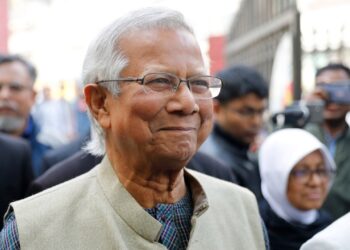On Wednesday, The 264-page report published by the independent Commission on Race and Ethnic Disparities, argued that the UK states: “Put simply we no longer see a Britain where the system is deliberately rigged against ethnic minorities. The impediments and disparities do exist, they are varied, and ironically very few of them are directly to do with racism. Too often ‘racism’ is the catch-all explanation, and can be simply implicitly accepted rather than explicitly examined”.
The report has sparked an angry response from activist groups, with race equality experts describing it as “extremely disturbing” and “deeply offensive” to black community and it is termerd as “hugely disappointing” by The sikh Federation(UK).
‘UK panel’s race report fails to recognise institutional discrimination against Sikhs’
The Sikh Federation (UK) on Thursday termed the report of the Commission on Race and Ethnic Disparities released a day ago by the British government. as “hugely disappointing” and “a whitewash”.
“As far as we are concerned, institutional discrimination exists and has been exposed further during the pandemic [of Covid 19]…We responded to the consultation, but the report fails to acknowledge many of the specific issues we raised relating to the Sikh community,” the Sikh Federation said in a statement.
The Sikh Federation (UK) principal adviser Dabinderjit Singh, talking to The Indian Express over phone, said that in the report more than 2,000 responses were factored into, including 325 by various organisations which included their outfit.
“The institutional discrimination with the members of Sikh community continues. The Boris Johnson government, through this report, has given a clean chit to itself, overlooking the concerns raised by us,” said Dabinderjit. “Twenty years after 9/11, Sikhs are still being viewed with suspicion.”
Referring to pandemic and members of Sikh community coming forward in large numbers to get vaccinated, Dabinderjit said, “As per official data in UK, 87 per cent Sikhs had come forward for Covid vaccination as compared to 91 per cent natives and 58 per cent black population.”
“Institutional discrimination against Sikhs continues un-recognized and un-addressed, including the discrimination against Sikhs reinforced by the Census 2010. Despite responses from the Sikh community, the report makes no mention of the community although we are a largely recognized ethnic as well as religious group. This may be explained by the make up of the 12-member Commission that has no Sikh representation,” said outfit’s chairman Amrik Singh.
Amrik Sing said that the community was hugely disappointed with the report. “Some of the recommendations on achieving inclusivity, such as an inclusive curriculum, use of data and moving away from from the term BAME (Black Asian and Minority Ethnic) are helpful. However, the recommendations do not go for enough to address the concerns we raised on the absolute need for the collection of good quality data on Sikhs to assess inequalities in healthcare, education and hate crimes,” he added.
The report noted, “The National Sikh Police Association submitted evidence to the Commission from a survey carried out in August 2020 on ‘racial disparities in the UK police force’ which found that of the people who participated, almost half (47%) had considered leaving their career due to their treatment. The majority (62%) of people reported suffering some form of racism at work, and 59 % felt they had been overlooked for opportunities some or most of the time due to racism or unconscious bias.”
The report added, “However, as outlined earlier in the chapter, the Commission has also heard overwhelming views that there has been a dynamic shift in police attitudes on race over the last few decades. Issues of cultural change and commitment to fostering a fair police service were emphasized by all senior officers that the Commission engaged with. Yet, how the police are perceived can be shaped by a small minority whose prejudiced behaviour attracts media attention. The Commission notes that while senior officers may appropriately sanction or act on such behaviour, these examples not only impact public perception of the police but also likelihood individuals would choose to pursue a career with policing.”
‘Positive’ recommendations according Dabinderjit.
To obtain inclusivity, the report recommended making modern Britain teaching an inclusive curriculum to “produce high quality teaching resources, through independent experts, to tell the multiple, nuanced stories of the contributions made by different groups that have made this country one it is today. Hailing this, Dabinderjit said, “This would highlight the role played by Sikh armymen in world war I and II.
Dabinderjit also hailed the report recommendations on using data in a responsible and informed way where report said “develop and publish a set of ethnicity data standards to improve understanding and information gathering, reducing the opportunity for misunderstanding and misuse.”
He also hailed the recommendation to “stop using aggregated and unhelpful term such as ‘BAME’, to better focus on understanding disparities and outcomes for specific ethnic groups.”
Criticism from Anti – racism groups
A spokesperson for Black Lives Matter UK said that while the report focused on education, “it fails to explore disproportionality in school exclusion, eurocentrism and censorship in the curriculum, or the ongoing attainment gap in higher education.
“We are also disappointed to learn that the report overlooks disproportionality in the criminal justice system – particularly as police racism served as the catalyst for last summer’s protests. Black people in England and Wales are nine times more likely to be imprisoned than their white peers, and yet, four years on, the recommendations from the Lammy review are yet to be implemented.”
Former Chief Crown Prosecutor for NW England Nazir Afzal, said he was very disappointed at the report’s conclusions saying it was “very selective in the data it selected.”
“The facts are when it comes to justice, for example, if you’re black, you’re 19 times more likely to be stopped and searched, you’re more likely to be arrested, you’re more likely to be charged, you’re more likely to be convicted, you’re more likely to be sent to prison on the same evidence as a British white person,” Afzal argued.
Why the focus on families and cultures, rather than racial disadvantage?
Former Chief Prosecutor Nazir Afzal says he thinks the Sewell government report ''puts a lot of the blame on the communities themselves''.
Listen 🔊 https://t.co/50SQDjxXjD@MattChorley | @nazirafzal pic.twitter.com/aAPpsnz6Bd
— Times Radio (@TimesRadio) April 1, 2021
Maurice Mcleod, the chief executive of Race on the Agenda, described the conclusion of the inquiry as “government level gaslighting” and criticised the summary for claiming communities are being “haunted” by “historic cases” of racism, creating “deep mistrust” in the system that could prove a barrier to success.
He said the implications of the report were that “the reason so many black people don’t get on well in this society is because they are stuck in the past and this makes them mistrustful. So racism isn’t the problem, people talking about racism is the problem.”
He said: “We would argue that you cannot tackle structural racism if you don’t believe it exists. The only substantive thing in the report is the decree that the public sector should stop using the term BAME; 250,000 people didn’t march through our cities during a pandemic demanding better syntax.”
Commission’s take on slavery is “deeply offensive”
Addressing the curriculum, the report said there is a “new story about the Caribbean experience which speaks to the slave period not only being about profit and suffering, but how culturally African people transformed themselves.”
Many have accused the commission of attempting to put a positive spin on slavery, including headteacherMs Gay.
While talking to ITV, news organization,
Ms Gay, who is of Black Caribbean origin, said that during the slave trade period the Empire attempted to erase African culture.
She said the curriculum needs to aim for a “reversal of slavery, not for someone to say, ‘because of slavery, you lost your culture, your knowledge and your origins and that’s really good, because now we can feed you the one that we want you to have’.”
Ms Maynard-Attem, an employment expert, called the report’s comments on slavery “deeply offensive”.
“I think for me that says everything that needs to be said about the report. It’s extremely disappointing,” she added.
Input from guardians, the Indian express
















